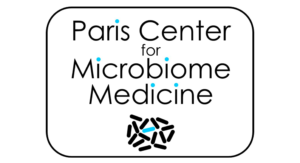As microbiome science expands, scientists worldwide are joining forces to better understand the impact commensal microbes found inside and on us have on the proper functioning of a wide range of ecosystems, from the ocean to the gastrointestinal tract.
The Paris Center for Microbiome Medicine (PaCeMM) is a consortium of institutions that was recently created to facilitate gut microbiome research. It connects 52 partners in the Paris area that are part of Assistance Publique Hôpitaux de Paris, the National Institute for Health and Medical Research (INSERM), the French National Research Institute for Agriculture, Food and the Environment (INRAE), the French Alternative Energies and Atomic Energy Commission (CEA) and several educational institutions including Sorbonne University.
GMFH editors took time to speak to Prof. Harry Sokol about the significance of the new Paris Center for Microbiome Medicine.
What is the Paris Center for Microbiome Medicine and why has it been created?
The PaCeMM concept arose from 3 simple observations:
- There is an exponential increase in data supporting the microbiome’s role in disease;
- Diseases show similarities in the way they affect many different medical fields in term of concepts, methodologies, questions and targets; but
- Microbiome research in the Paris area is mostly compartmentalized, with insufficient interactions between teams from different medical areas.
As such, PaCeMM was created to solve this issue. This multi-disease consortium has the general goal of using gut microbiome science to create new tools for medicine. PaCeMM will bring together 52 partners representing top level complementary expert knowledge in clinical medicine, microbiota exploration and statistics/artificial intelligence.
Understanding the complexity of gut microbiota-host interactions is not only central to the field of life sciences, but is also relevant for many other disciplines and industrial applications. Which disciplines/stakeholders will join the project in order to accelerate the transfer of knowledge?
PaCeMM is focusing on medical applications with the aim of building tools for the benefit of physicians, patients and society. In this context, to have a concrete impact on everyday life, industrial companies are key partners in ensuring a concrete impact on everyday life and PaCeMM is aiming to establish fruitful collaborations with them. In fact, more than 15 pharma, probiotics and microbiome companies have already shown an interest and supported the establishing of PaCeMM.
The tools for manipulating the microbial and metabolic diversity of the gut for the benefit of human health include diet, prebiotics, probiotics and fecal transplants. How will the Paris Center for Microbiome Medicine network take advantage of the gut microbiome for preventive and therapeutic needs?
The Paris Center for Microbiome Medicine will develop new microbiome-based therapeutic strategies using different approaches. Several clinical trials within the PaCeMM network involving fecal microbiota transplantation are either ongoing or will start in 2020, and others will follow. FMT research will be further accelerated with the opening of the APHP FMT center, with dedicated means and personnel, in early 2020. The center’s aim will be to define procedures and new indications for FMT while also using these clinical intervention studies as discovery tools to unravel the elements responsible for therapeutic effects within the microbome. This will open up new ways of developing simpler and more controlled treatments, such as live biotherapeutics or post-biotics. This type of treatments, in addition to prebiotics and dietary interventions, will also be developed using all the knowledge and expertise of the PaCeMM teams.
Can human gut microbiome knowledge be utilized in patient care and diagnosis? What challenges remain in integrating gut microbiome analyses into precision nutrition and medicine strategies and how will the Paris Center for Microbiome Medicine help in this regard?
Even though there is currently no clinical interest as such in any of the microbiome-based tests available, I am convinced that some microbiome-based tests will become biomarkers in many clinical situations in the future. These tests will probably be very specific for each individual clinical question, as currently happens with other types of biomarkers. To achieve that, first we need standardized, high quality and reproducible methods to obtain, store and analyze stool samples. This aspect will be solved at PaCeMM through close collaboration with the APHP Microbiome Biobank, which will be fully operational in the next few months. This structure will allow for a standardization of all the pre-analytical sample processing for all PaCeMM studies (and others), using the best methodology developed with INRAE. We will also need dedicated and large-scale studies to identify, evaluate and confirm the clinical impact of specific microbiome-based biomarkers.
What are the top three priorities of the project for the next five years?
The top three priorities for the next five years are (i) to structure microbiome medicine research in the Paris area; (ii) to develop microbiome-based biomarkers and treatments ready to be transferred to industrial partners for further development; and (iii) to increase the awareness and provide fair information about the gut microbiome as well as increasing access to FMT both in the Paris area and in France.


